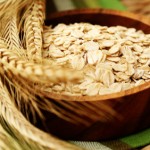Fusing Aging Theories: Telomere Shortening Leads to Mitochondrial Dysfunction

A study finds a link between theories of aging, which could open doors for research into groundbreaking therapies.
At Harvard-affiliated Dana-Farber Cancer Institute, scientists have gathered data suggesting telomere shortening is the cause of mitochondrial dysfunction and diminished antioxidant defenses. Together, they decrease the body’s energy and diminish organ function, both characteristic of old age.
As telomeres—protective caps at the end of cell chromosomes—shorten with age and begin to fray, cells activate the p53 gene, which signals an “emergency shutdown” chain of events that turns off normal cell growth and division and compromise antioxidant defenses. Going one step further, data from the carefully orchestrated mouse study, published in Nature, show that the p53 gene also represses PGC1-alpha and PGC1-beta. These PCGs are considered the master regulators of metabolism and mitochondrial function.
Repressing PCGs increases the number of dysfunctional mitochondria (with mutated mitochondrial DNA) and leads to a decrease in functional mitochondria distributed throughout in muscles and organs. The dysfunctional mitochondria in aged tissues leak greater amounts of reactive oxygen species and the lack of functional mitochondria hinders normal energy production from cell respiration (the body’s main producer of ATP energy).
Is There a Link Between Telomeres and Dietary Fiber?
New evidence published in Archives of Internal Medicine has it that eating more dietary fiber, particularly from whole grains, could lead to a longer life. The large study found a high-fiber diet reduced risk of heart disease and cancer, as well as infectious and respiratory illnesses.
This is great news for those eating diets high in fiber. What’s also interesting is that another reason why dietary fiber is protective to health is because of its influence on telomeres. Telomeres are the protective caps at the end of chromosomes, and their length is considered the closest way to measure lifespan in humans.
As reported in a prospective cohort study published in the March 2010 edition of American Journal of Clinical Nutrition (AJCN), telomere length is positively associated with higher fiber intake in women. Dietary fiber from whole grains appears to provide the strongest benefit.
In addition, in the AJCN study, the researchers found telomere length was negatively associated with increased waist circumference and higher intake of omega-6 fatty acids in the diet.
This is great news for those eating diets high in fiber. What’s also interesting is that another reason why dietary fiber is protective to health is because of its influence on telomeres. Telomeres are the protective caps at the end of chromosomes, and their length is considered the closest way to measure lifespan in humans.
As reported in a prospective cohort study published in the March 2010 edition of American Journal of Clinical Nutrition (AJCN), telomere length is positively associated with higher fiber intake in women. Dietary fiber from whole grains appears to provide the strongest benefit.
In addition, in the AJCN study, the researchers found telomere length was negatively associated with increased waist circumference and higher intake of omega-6 fatty acids in the diet.
Why Dark Chocolate is Good for Her Heart
Listen up, men! On this Valentine’s Day, why not surprise your special lady with chocolates that are healthier for her heart? Dark chocolate eaten in moderate amounts weekly is associated with improved cardiovascular fitness in women, research suggests.
Scientists are only beginning to understand why dark chocolate is heart healthy, but a new study offers this explanation—its rich content of cocoa antioxidant compounds, called polyphenols, could enhance activity of special proteins called sterol regulatory element binding proteins (SREBPs), which are involved in cholesterol metabolism.
These activated SREBPs then bind to genes on DNA (sterol regulatory element sequences) that boost liver production of another protein called apolipoprotein A1 (ApoA1), which is the major protein component of HDL “good” cholesterol.
Correspondingly, cocoa polyphenols decreased production of another protein in the liver called apolipoprotein B (ApoB), which is the major protein component of LDL “bad” cholesterol. The study also showed cocoa polyphenols induced activity of LDL receptors, allowing more cholesterol to be removed from the bloodstream.
Scientists are only beginning to understand why dark chocolate is heart healthy, but a new study offers this explanation—its rich content of cocoa antioxidant compounds, called polyphenols, could enhance activity of special proteins called sterol regulatory element binding proteins (SREBPs), which are involved in cholesterol metabolism.
These activated SREBPs then bind to genes on DNA (sterol regulatory element sequences) that boost liver production of another protein called apolipoprotein A1 (ApoA1), which is the major protein component of HDL “good” cholesterol.
Correspondingly, cocoa polyphenols decreased production of another protein in the liver called apolipoprotein B (ApoB), which is the major protein component of LDL “bad” cholesterol. The study also showed cocoa polyphenols induced activity of LDL receptors, allowing more cholesterol to be removed from the bloodstream.
No evidence of link between dairy and chronic disease
The popular press has recently reported on assumptions that regular consumption of milk or dairy products may increase risk of cardiovascular disease or death. However, new research has once again confirmed after systematically analyzing 17 studies that there is simply no evidence to substantiate these claims.
The evidence, in fact, shows just the opposite—drinking milk slightly reduces the risk of coronary heart disease (1). In addition, multiple studies show that milk and dairy proteins (whey and casein) may actually protect the heart by helping to maintain lower blood pressure, lower blood sugar, and lead to reduced bodyweight (2-4).
The renowned, epidemiologic and nutrition researcher Walter Willet, Ph.D., and his group at Harvard, conducted this huge analysis by looking at various types of dairy intake, ranging from milk intake to total high-fat dairy products and total low-fat dairy products and correlating to risk of cardiovascular disease (CVD), coronary heart disease (CHD), stroke and all-cause mortality. This study was a meta-analysis of many prospective cohort studies in healthy men and women (4).
The renowned, epidemiologic and nutrition researcher Walter Willet, Ph.D., and his group at Harvard, conducted this huge analysis by looking at various types of dairy intake, ranging from milk intake to total high-fat dairy products and total low-fat dairy products and correlating to risk of cardiovascular disease (CVD), coronary heart disease (CHD), stroke and all-cause mortality. This study was a meta-analysis of many prospective cohort studies in healthy men and women (4).
Resveratrol Boosts Levels of Fat-Control Hormone
If shoring up heart and cell health isn’t reason enough to try resveratrol, then perhaps help trimming down the midsection will add some extra motivation. A new study from University of Texas Health Center suggests that supplementing daily with the anti-aging compound found in grapes may increase production of a hormone produced by fat cells called adiponectin.
Adiponectin has a wide range of benefits and increased amounts of the hormone are associated with greater insulin sensitivity and reduced bodyweight. The study should interest anyone who is growing older or wants to lose weight, according to the study’s senior author Feng Liu, professor of pharmacology and member of the Barshop Institute of Longevity and Aging Studies at the Health Science Center.
The study, published in the Journal of Biological Chemistry, may help unravel a novel mechanism by which resveratrol acts to deliver health benefits, apart from its well-reported activation of Sirtuin 1, the “longevity gene.”
Adiponectin has a wide range of benefits and increased amounts of the hormone are associated with greater insulin sensitivity and reduced bodyweight. The study should interest anyone who is growing older or wants to lose weight, according to the study’s senior author Feng Liu, professor of pharmacology and member of the Barshop Institute of Longevity and Aging Studies at the Health Science Center.
The study, published in the Journal of Biological Chemistry, may help unravel a novel mechanism by which resveratrol acts to deliver health benefits, apart from its well-reported activation of Sirtuin 1, the “longevity gene.”
CoQ10 Adds to Mediterranean Diet’s Anti-Aging Benefits
Elderly men and women who supplement Mediterranean-style meals with coenzyme Q10 (coQ10) enjoy greater antioxidant protection and could slow aging, a Spanish study finds (1).
In a randomized crossover trial, University of Cordoba researchers assigned 20 healthy adults (ages 65 and older) to one of the three dietary protocols for the duration of four weeks: a traditional Western-style diet rich in saturated fats, a Mediterranean-style diet rich in olive oil, or a Mediterranean-style diet supplemented with coQ10 (200 mg/day in capsules).* **
The scientists found that the combination (Mediterranean-style meals and coQ10) improved antioxidant activity and reduced cellular oxidative stress in the subjects more successfully than the Mediterranean-style or Western-style diet alone.
The Mediterranean-style diet protocols also exhibited greater heart-protective benefits in comparison to the Western-style diet. The scientists noticed a significantly greater decrease in HDL cholesterol (the “good” cholesterol) levels in response to the Western-style meals.
Writing in the December issue of AGE, the authors concluded that the effect of the Mediterranean-style diet rich in olive oil, in combination with coQ10, may have “favorable effects on the aging process” and on the prevalence of age-related conditions.
In a randomized crossover trial, University of Cordoba researchers assigned 20 healthy adults (ages 65 and older) to one of the three dietary protocols for the duration of four weeks: a traditional Western-style diet rich in saturated fats, a Mediterranean-style diet rich in olive oil, or a Mediterranean-style diet supplemented with coQ10 (200 mg/day in capsules).* **
The scientists found that the combination (Mediterranean-style meals and coQ10) improved antioxidant activity and reduced cellular oxidative stress in the subjects more successfully than the Mediterranean-style or Western-style diet alone.
The Mediterranean-style diet protocols also exhibited greater heart-protective benefits in comparison to the Western-style diet. The scientists noticed a significantly greater decrease in HDL cholesterol (the “good” cholesterol) levels in response to the Western-style meals.
Writing in the December issue of AGE, the authors concluded that the effect of the Mediterranean-style diet rich in olive oil, in combination with coQ10, may have “favorable effects on the aging process” and on the prevalence of age-related conditions.
Vitamin D Status Affected by Obesity
People who are overweight or obese are more likely to have lower circulating levels of vitamin D and may have trouble with conversion to its hormonally active form, a Norwegian study suggests.
These findings, published in the Journal of Nutrition, may partially explain why carrying extra pounds raises risk of several poor health outcomes linked to low vitamin D. The hormonally active form is critical for maintaining cell health, strong bones, a strong immune system, and a healthy heart and brain.
University of Oslo researchers observed almost 1,800 people for six years—about 62 percent obese and 11 percent morbidly obese as indicated by Body Mass Index (BMI)—and found an inverse relationship between higher BMI and serum concentrations of circulating 25(OH)2D and the hormonally active 1,25(OH)2D.
These findings, published in the Journal of Nutrition, may partially explain why carrying extra pounds raises risk of several poor health outcomes linked to low vitamin D. The hormonally active form is critical for maintaining cell health, strong bones, a strong immune system, and a healthy heart and brain.
University of Oslo researchers observed almost 1,800 people for six years—about 62 percent obese and 11 percent morbidly obese as indicated by Body Mass Index (BMI)—and found an inverse relationship between higher BMI and serum concentrations of circulating 25(OH)2D and the hormonally active 1,25(OH)2D.
Omega-3 Slows Muscle Loss in Older Adults
Supplementation with omega-3 fatty acids from fish oil stimulate muscle growth and can help prevent muscle loss in aging adults, according to a new randomized, controlled trial.
The findings, published in American Journal of Clinical Nutrition, suggest that fish oil supplementation may be useful as a nutritional intervention to counter the onset of sarcopenia, or age-related skeletal muscle loss. The researchers performing the study gave 16 healthy, older adults either omega-3 fatty acids (1.86 grams of eicosapentaenoic acid (EPA) and 1.5 grams of docosahexaenoic acid (DHA)) or corn oil (in equal amounts) for eight weeks.
Each of subjects in this study were considered to be in good health having no cardiovascular disease, hypertension, or diabetes. They did not engage in regular exercise, take medication that could affect protein metabolism, report excessive alcohol intake, or engage in smoking.
By the end of the study, corn oil supplementation showed no effect on muscle, but omega-3 supplementation increased muscle anabolic signaling activity.
The authors write, “Our study provides compelling evidence of an interaction of omega-3 fatty acids and protein metabolism in human muscle and suggest that dietary omega-3 fatty acid supplementation could potentially provide a safe, simple, and low-cost intervention to combat sarcopenia.”
The findings, published in American Journal of Clinical Nutrition, suggest that fish oil supplementation may be useful as a nutritional intervention to counter the onset of sarcopenia, or age-related skeletal muscle loss. The researchers performing the study gave 16 healthy, older adults either omega-3 fatty acids (1.86 grams of eicosapentaenoic acid (EPA) and 1.5 grams of docosahexaenoic acid (DHA)) or corn oil (in equal amounts) for eight weeks.
Each of subjects in this study were considered to be in good health having no cardiovascular disease, hypertension, or diabetes. They did not engage in regular exercise, take medication that could affect protein metabolism, report excessive alcohol intake, or engage in smoking.
By the end of the study, corn oil supplementation showed no effect on muscle, but omega-3 supplementation increased muscle anabolic signaling activity.
The authors write, “Our study provides compelling evidence of an interaction of omega-3 fatty acids and protein metabolism in human muscle and suggest that dietary omega-3 fatty acid supplementation could potentially provide a safe, simple, and low-cost intervention to combat sarcopenia.”
Study Boosts Validity of Aging Research by John Anderson & Dr. Bill Andrews
A new study on mice published in Nature has added validation to research that is being performed by Bill Andrews, Ph.D., who has partnered with Isagenix Founder John Anderson to “turn back the clock” on aging.
Their approach is to screen thousands of natural product compounds a week to turn on the enzyme, telomerase, in cells to protect telomere length and reverse its loss.
Telomeres are protective sequences of repetitive non-coding DNA segments found at the end of chromosomes. In recent years, telomere length has been hypothesized to be the closest way to measure lifespan in humans.
In this latest study, Harvard Medical School researchers found that mice lacking telomerase aged much more rapidly, and died earlier, as an abundance of critically short telomeres developed. But when the enzyme was reawakened in the mice, age-related symptoms disappeared and rejuvenation was seen in several organs including their brains.
Their approach is to screen thousands of natural product compounds a week to turn on the enzyme, telomerase, in cells to protect telomere length and reverse its loss.
Telomeres are protective sequences of repetitive non-coding DNA segments found at the end of chromosomes. In recent years, telomere length has been hypothesized to be the closest way to measure lifespan in humans.
In this latest study, Harvard Medical School researchers found that mice lacking telomerase aged much more rapidly, and died earlier, as an abundance of critically short telomeres developed. But when the enzyme was reawakened in the mice, age-related symptoms disappeared and rejuvenation was seen in several organs including their brains.
New Vitamin D Guidelines Still Fall Short, Say Experts
Emerging clinical research over the last decade has sparked enormous interest in the “sunshine vitamin” because of new associations with bone density, a stronger immune system, a healthier heart and brain, and maintenance of cell integrity. The hormone-like vitamin is noted to have direct effects on cells throughout the body and act on more than 2,000 genes.
For this reason, the Institute of Medicine, of the National Academy of Sciences, was asked by the United States and Canadian governments to assess current data and subsequently tasked a committee of experts to update nutrient reference values.
The IOM committee did as asked and has now tripled the recommended dietary allowances (RDAs) for vitamin D in ages 9 to 50 to (600 IU) and raised amounts even further for those ages 70 and older (800 IU). Also, it doubled the upper level (UL) intake for vitamin D (4000 IU).
However, the new guidelines for vitamin D came as a disappointment to key vitamin D researchers who consider the report too conservative to deal with a widespread epidemic.
The influence of sun exposure in itself, which causes the skin to generate the equivalent of a whopping 20,000 IU to 40,000 IU of vitamin D within only a few minutes depending on season and time of day, has now been highly regarded as having had a profound and crucial role in preserving health, beyond the needs to regulate absorption of calcium.
For this reason, the Institute of Medicine, of the National Academy of Sciences, was asked by the United States and Canadian governments to assess current data and subsequently tasked a committee of experts to update nutrient reference values.
The IOM committee did as asked and has now tripled the recommended dietary allowances (RDAs) for vitamin D in ages 9 to 50 to (600 IU) and raised amounts even further for those ages 70 and older (800 IU). Also, it doubled the upper level (UL) intake for vitamin D (4000 IU).
However, the new guidelines for vitamin D came as a disappointment to key vitamin D researchers who consider the report too conservative to deal with a widespread epidemic.
The influence of sun exposure in itself, which causes the skin to generate the equivalent of a whopping 20,000 IU to 40,000 IU of vitamin D within only a few minutes depending on season and time of day, has now been highly regarded as having had a profound and crucial role in preserving health, beyond the needs to regulate absorption of calcium.










No comments:
Post a Comment